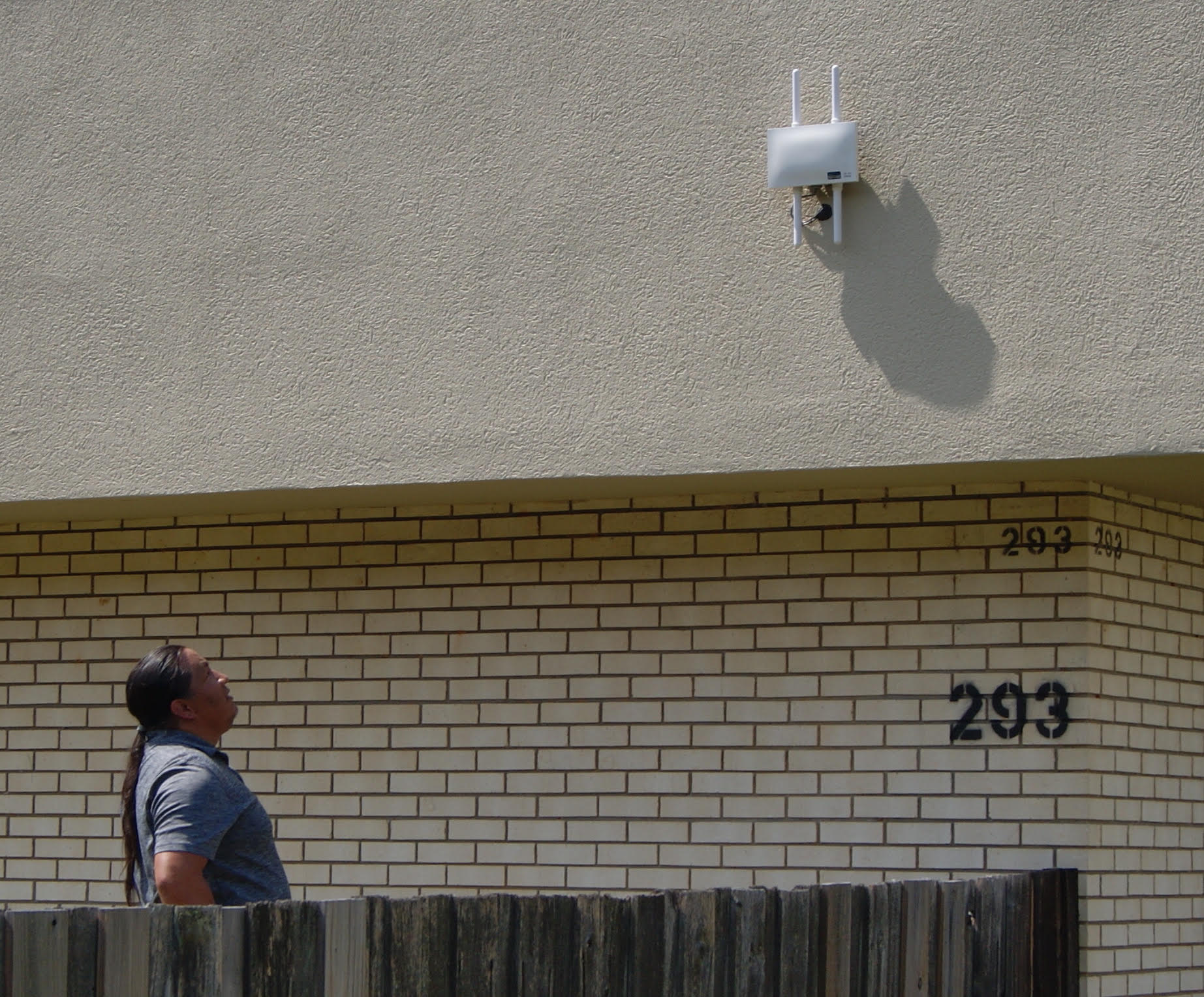
- Details
- By Native News Online Staff
CHOCTAW, Miss.—The Mississippi Band of Choctaw Indians said it will offer WiFi at all eight of its schools that are located on tribal lands. The Tribe utilized funds from the federal CARES Act funding to complete the project.
The tribe said it is setting up external hotspots at each of the tribal schools — six elementary, one middle and one high school — to provide Internet access to individuals inside the building or up to 400 yards away. The indoor-outdoor WiFi setup allows for extra flexibility for students and teachers, especially if the school district calls for distance learning this fall amid the COVID-19 pandemic.
"Because COVID-19, our plans for the fall are uncertain," David Germany, director of Choctaw Tribal Schools, said in a statement. "We are working hard to determine whether we can bring our students back to school physically. Either way, this Wi-Fi access is a positive step, because students can sync to the Internet from the parking lot if they need to. That will help those students who don't have broadband access at their homes."
Firewall protections are in place so that students can't connect to inappropriate sites, whether indoors or outdoors on school property, according to a statement.
"Our overriding commitment is to equip our students with the tools they need to succeed, and access to the Internet certainly is an important one," Sherry Tubby, assistant director of Choctaw Tribal Schools said in a statement. "We evaluated several options to find the most cost-effective and timely way to offer Wi-Fi access, and ultimately decided to install hotspots at each of our school facilities." She added, "The fast-track installation of the Wi-Fi network was coordinated by Elray King, Tribal Schools Network Administrator, who worked tirelessly to complete its implementation."
Choctaw Tribal schools are also working to provide all students with a digital device such as a laptop or iPad that they can use for homework or distance learning. School administrators are also training parents and students to use Google Classroom, which Tubby noted will be useful for in-person as well as distance learning.
More Stories Like This
Hanging a Red Dress for Christmas: MMIP, Native Higher Education, and Hope for a Better New YearNative Students Can Win $5,000 Scholarship, International Distribution in Pendleton Design Contest
American Indian College Fund Raises Alarm Over Plan to Shift Native Programs Away From the Dept. of Education
MacKenzie Scott Foundation Gives $5 Million Contribution to Little Priest Tribal College
Tribal Leaders Push Back on Dismantling of U.S. Department of Education
Help us defend tribal sovereignty.
At Native News Online, our mission is rooted in telling the stories that strengthen sovereignty and uplift Indigenous voices — not just at year’s end, but every single day.
Because of your generosity last year, we were able to keep our reporters on the ground in tribal communities, at national gatherings and in the halls of Congress — covering the issues that matter most to Indian Country: sovereignty, culture, education, health and economic opportunity.
That support sustained us through a tough year in 2025. Now, as we look to the year ahead, we need your help right now to ensure warrior journalism remains strong — reporting that defends tribal sovereignty, amplifies Native truth, and holds power accountable.
 The stakes couldn't be higher. Your support keeps Native voices heard, Native stories told and Native sovereignty defended.
The stakes couldn't be higher. Your support keeps Native voices heard, Native stories told and Native sovereignty defended.
Stand with Warrior Journalism today.
Levi Rickert (Potawatomi), Editor & Publisher

